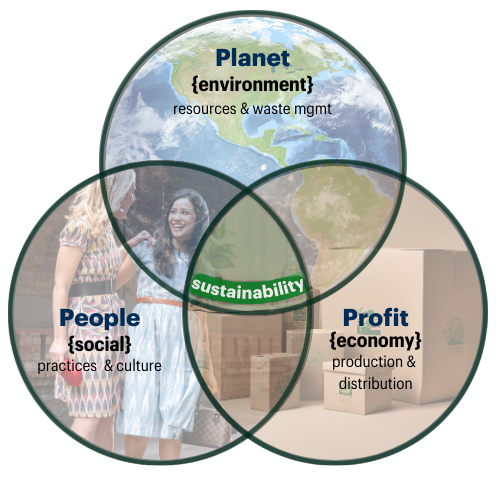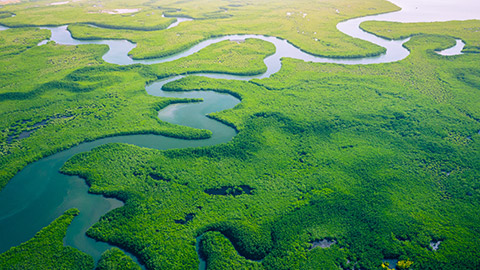Thank you for taking the time to learn how to identify necessary changes that you can make to protect and support the crucial goals of workplace environmental responsibility and sustainability.
Acknowledgment of Country
In the spirit of reconciliation, Colab acknowledges the traditional custodians of country throughout Australia and their connections to land, sea and community. We pay our respect to their elders, past and present, and extend that respect to all Aboriginal and Torres Strait Islander peoples today.
The vast majority of people in the developed world spend close to one-third of their lives in their workplace and often take work home with them.
Contributing to a sustainable work environment has been shown to make the time spent at work less stressful and more enjoyable. Employees who are less stressed and enjoy their work more report increased motivation levels at work and a genuine desire to contribute to the goals of the organisation.
You'll learn the issues our environment faces, how to approach ethical decisions that support change in your own practices, and how you can find the confidence to inspire others to share the burden of leading change at work. Start small when encouraging others to join, it may be enough to plant a sustainability seed that others will nurture as their own journey progresses.
Take note
Throughout this course, we will encourage you to reflect on your evolving feelings as you gain more knowledge about sustainability. To get the most out of your time with this course, use a journal to capture your thoughts.
Challenge yourself to use a digital journal, such as notes on your phone, or computer. However, some of us learn better and retain more knowledge by writing notes on paper. If that's you - don't fret. Grab yourself some scrap paper, and clip or staple the pieces together for a DIY sustainability notebook. If you don't have access to scrap paper, try and reuse paper, such as dedicating the end of a spiral bound notebook you had previously used.
The importance of the three Ps
Workplace sustainability is about balancing the ‘P’ trinity: Planet, People and Profit. Workplaces that balance the needs of all of these competing needs find they hang onto employees longer, have higher satisfaction surveys from employees, and enjoy a margin of success due in part to their commitment to sustainable practices.

Learn your terms
The United Nations 1987 Brundtland Commission defines Environmental sustainability as
meeting the needs of the present without compromising the ability of future generations to meet their own needs.
The focus on sustainability in that report further looks at
how we use our world and its resources now and the impacts that it will have on ourselves, but mostly on future generations and the health of the world.
Sustainability practices should involve all aspects of your life, but we're focusing here on what you can do while you are at work. This starts with always considering how your actions are impacting the planet — thinking and acting in a sustainable way throughout your daily working routines, processes, practices and systems of an organisation.
Your employers throughout your career, or you — should you be or become an employer, should have established environmental management practices. This indicates an awareness of how the business affects (or has the potential to affect) our environment and is taking actions that lead to minimising their environmental ecological footprint, which Global Footprint Network describes as 'how much nature we use'.
Your ecological footprint

An ecological footprint measures individuals and organisations' impact on the environment due to their actions, policies, and procedures. The concept estimates how the world can produce or reproduce the earth’s resources in balance with how much we use.
Global Footprint Network is making lists and taking names. They offer that data to businesses to enable action.
They claim that:
individuals, communities and government leaders use our data to better manage limited resources, reduce economic risk, and improve well-being.
Sustainable practices start at home, commute with you to work, continue during your workday, and impact your home commute and nighttime rituals.
Knowing the impact you have on your environment is a start to understanding how you can make changes to reduce your footprint.
Wondering about the impression you are leaving behind? Complete this detailed WWF ecological footprint calculator for a deep dive into your footprint.
Reflection
The word sustainability is commonly discussed and implemented at many levels around the world, but what does it mean to you? To be sustainable, knowing how this looks in action is important.
You may have different feelings and attitudes about sustainability than those with whom you work, commute, and live.
The following activity provides you an opportunity to document your thoughts as a starting point for your learning journey.
You have completed the Introduction in the first module, What is Sustainability in the Workplace, well done. The next step is to learn more about the issues, and precisely what you can do to help. Use the left navigation menu to move on to the next topic, "Developing the Mindset for Change."
